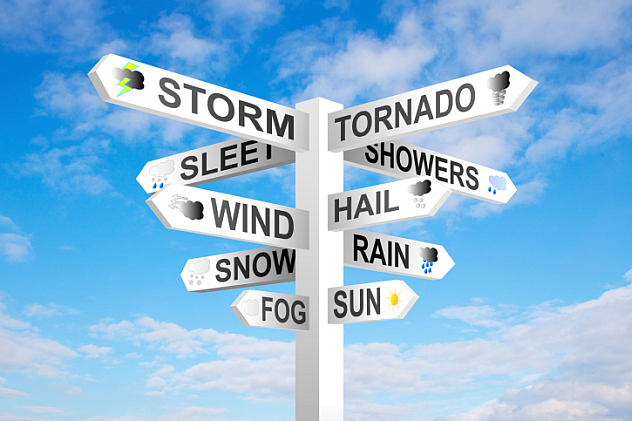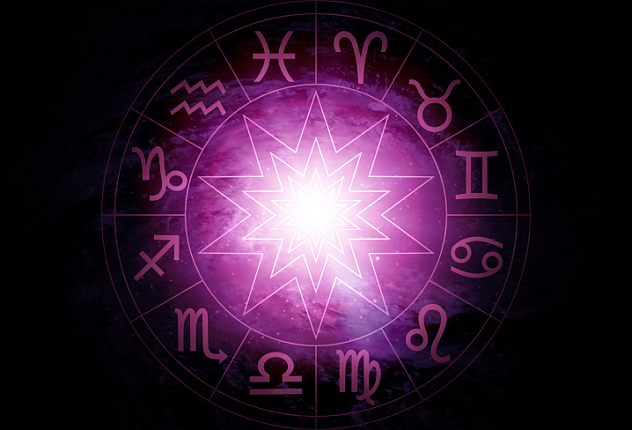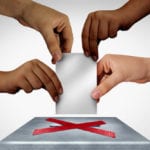 History
History  History
History  Food
Food 10 Weird Foods Inspired by Your Favorite Movies
 Religion
Religion 10 Mind-Blowing Claims and Messages Hidden in the Bible Code
 Facts
Facts 10 Things You Never Knew about the History of Gambling
 Weird Stuff
Weird Stuff 10 Cool and Creepy Facts about Collecting Tears
 Humans
Humans The Ten Most Lethal Gunslingers of the Old West
 Misconceptions
Misconceptions 10 Phony Myths and Urban Legends That Just Won’t Die
 History
History 10 Amazing Roman Epitaphs
 Weird Stuff
Weird Stuff 10 Niche Subcultures That Are More Popular Than You Might Think
 Mysteries
Mysteries 10 Tragic Disappearances and Deaths in Joshua Tree National Park
 History
History Top 10 Tragic Facts about England’s 9 Days Queen
 Food
Food 10 Weird Foods Inspired by Your Favorite Movies
 Religion
Religion 10 Mind-Blowing Claims and Messages Hidden in the Bible Code
Who's Behind Listverse?

Jamie Frater
Head Editor
Jamie founded Listverse due to an insatiable desire to share fascinating, obscure, and bizarre facts. He has been a guest speaker on numerous national radio and television stations and is a five time published author.
More About Us Facts
Facts 10 Things You Never Knew about the History of Gambling
 Weird Stuff
Weird Stuff 10 Cool and Creepy Facts about Collecting Tears
 Humans
Humans The Ten Most Lethal Gunslingers of the Old West
 Misconceptions
Misconceptions 10 Phony Myths and Urban Legends That Just Won’t Die
 History
History 10 Amazing Roman Epitaphs
 Weird Stuff
Weird Stuff 10 Niche Subcultures That Are More Popular Than You Might Think
 Mysteries
Mysteries 10 Tragic Disappearances and Deaths in Joshua Tree National Park
10 Bizarre Things Astrology Has Been Used For
Today, the once-loved “science” of astrology has been moved to the back pages of the newspaper or a daily update in your email, usually read for a laugh. Our star signs mean little more than a neat tattoo idea, and as for those people that take it seriously? Many of us tend to take them less seriously. But throughout history, astrology has been an honest-to-gosh science, used for many, many more applications than just telling fortunes.
10 Breeding Animals

Being able to successfully breed livestock was often a matter of life and death for entire families, so farmers often tried anything and everything in order to make sure their animals produced the largest, biggest offspring they could. Sometimes, that meant drawing up star charts for their animals, and animals born under different star signs were thought to have different traits. If you were breeding for beauty? Make it a Libra. Looking to replenish your breeding stock? Make it a Scorpio, Pisces, or Cancer. Gestation periods have long been documented, so it was a simple matter of the desired birthday of your new animal and counting backward for the gestation period to figure out when you should introduce breeding pairs to each other.
A look at breeding practices from 17th-century England suggests that while not all who bred animals relied on doing things by the stars in order to create the healthiest and best stock, others took it quite seriously and thought that timing their animals’ cycles to the stars was crucial in breeding the best. And even those who didn’t use astrology wouldn’t hesitate to blame a failed breeding or unhealthy livestock on a failure of the stars, witchcraft, or some other scientifically questionable practice. And just in case you didn’t want to leave anything up to chance, there are also astrological guidelines on when the best time is for castrating, docking, and weaning newborn animals.
9 In The Bible

Trying to find our future in the stars has been around a long time, and Biblical writers didn’t approve of it. Using astrology was an affront to God—it was trying to find answers elsewhere, and that certainly wasn’t the good, Christian thing to do.
There are a number of places in the Bible that astrology is used to reinforce the idea that God is the only true source for knowledge and guidance. In Daniel 2, Nebuchadnezzar is plagued by bad dreams. Wanting to know what these dreams mean, he summons all the magic-users in his land, including the astrologers. When they fail to tell him what any of the bad dreams are about, he condemns all the wise men of the realm to death. Daniel gets word of the order, and asks God for guidance. That, of course, is the right thing to do; Daniel gets the answers that he needs to save himself and his friends, making it clear that astrology and other magic isn’t the way to go if you want answers about what’s going on around you and guidance as to where you’re going.
There are also a number of references—including Psalm 19—that refer to the stars as a testament to the glory of God instead of being a way to cheat and read the future. According to Jeremiah 10:2, astrology is the way of the heathen, and true Christians shouldn’t be troubled by anything that astrologers might try to say. Finally, 2 Kings 21:6 is even more clear about what it thinks in regards to astrology, stating that men who dabble in astrology bring evil into the world and do nothing but anger God.
8 In Agriculture

We’ll give this one half points for being good, sound logic. The success of any crop depends heavily on the season, and proper planting times are crucial for making sure each new seed has plenty of time to grow before the temperature gets too cold for the final product to mature. Use of astrology in agriculture goes farther than that, though, and it’s long been thought that the movement of the stars and planets will tell a farmer how hot and dry the season will be, or how much rain will fall.
Both Hesiod and Virgil stressed the importance of reading the stars before planting the crops, and the phase of the Moon in which the seeds were planted was also important. Sowing seeds and grafting trees should be done at the beginning of the waxing moon for greatest success, while a seed planted during the waning moon won’t sprout. Trees planted during a waning moon were thought to establish themselves in the light of that moon phase and would thrive by the waxing moon. Pliny wrote on the importance of only planting seeds by the waxing moon, while Hesiod gets even more specific—plant on the 9th and the 13th days of the moon cycle for the best results. Barley and other grains should be planted when the Pleiades sets—at least, that was according to Virgil.
Some of it’s still in practice. According to the Bio-Dynamic Association of India, successful farming relies on understanding the rhythmic movement of the Moon and the effect that it has on seeds and plants. The theories are based around the idea that the Moon has a drastic impact on the water of the Earth—and since water is crucial in the growth and development of plants, it makes sense that the phases of the moon would be instrumental in successful planting. There’s a lot to consider, according to the organization; for instance, rain is more likely to happen during a full moon, and the same full moon will make plants more capable of absorbing water and nutrients. Even the Farmers’ Almanac has an astrological guide for planting, telling farmers just what days of the month to plant which crops and what days are better left to clearing weeds and repairing fences.
7 Meteorology

Astrology and astronomy might be on opposite ends of the scientific spectrum now, but that wasn’t always the case. When Tycho Brahe was writing in the middle of the 16th century, among his observations was the idea that astrological patterns observed in the last 12 days of December could be used to accurately predict the weather in each month of the upcoming year. He kept regular journals of observances in hopes of proving the theory, but one has to wonder how sure of it he was as he published them under the name of one of his students.
Johannes Kepler was also a huge proponent of using astrology to predict weather and did so on a regular basis—with, by accounts, staggering success. He was credited with putting together incredibly accurate weather calendars based on his observations of the stars, and pinpointing dates of when and where storms would hit. Both he and Brahe were supporters of astrology as meteorology, but there was one big sticking point on which they didn’t agree: Brahe didn’t think the Earth moved.
Movement of the planets was key in laying out astrological predictions, and whether or not a particular planet moved was a pretty big deal. As much of a champion for other sciences that Kepler was, he also went head-to-head with religious speakers who claimed that astrology was bunk, and insisted that it had its valuable place. Even through Victorian times, the idea that weather could be successfully forecast through the stars was a powerful one, and respected scientists even used the term “weather prophecy” to describe it.
6 Propaganda In World War II

Hitler’s obsession with the occult was well popularized, and it also made for an unlikely spy. German-born, Hungarian citizen Louis de Wohl was the self-styled “Modern Nostradamus,” and was by all accounts an attention-starved megalomaniac who craved the spotlight. He was also an astrologer to the elite of Britain, including Romanian ambassador Viorel Virgil Tilea. Eventually, Tilea returned to his home country, but his interest in astrology didn’t waver. Soon, he was consulting with a man who he (incorrectly) believed was working with Hitler himself to predict the future of the Third Reich.
De Wohl wrote up Hitler’s horoscope (he lost the war), and got himself a job working with the British secret services, who were intrigued by the potential of his contacts. As if that wasn’t enough, de Wohl took it upon himself to name his one-man operation “the Psychological Research Bureau,” doing regular interpretations of Hitler’s horoscope while keeping up his own public relations and doing the admittedly more useful task of spying on his well-to-do clientele.
By 1941, the British had decided to try their hand at a little black propaganda—they sent de Wohl on a speaking tour of the United States, with the instruction that he was to make it well known that the stars weren’t favoring Hitler to win. (Epically, this was after a fake swearing-in ceremony that was done to appease de Wohl, who was insisting he be made an army captain before he went on any tours.) He toured the US for eight months, making appearances, giving talks, and answering questions in the hopes of swaying the nation toward getting involved in the war. The Japanese attack on Pearl Harbor happened while he was in the States fulfilling the duties of his mission. He returned to Britain to find that he’d largely been forgotten, a fact that probably became pretty clear when he showed up at his offices at Grosvenor House to find that the entire Special Operations unit had left without telling him where they’d gone.
5 Deciding Where To Live

While most of us might look at career opportunities, how close we are to family or what kind of winters we want to have to live through, others turn to astrology when they’re looking for a place to relocate to. According to modern proponents of Astro*Carto*Graphy, it’s also been called locational astrology and it’s been used as far back as Biblical times, when the Magi were looking for the location of their sacred birth. The technique made the jump into more mainstream astrology when computers made plotting points and locations easier.
Laying out a complicated diagram of star charts that use a person’s exact time of birth against the physical world should, in theory, be able to tell you what kind of experiences you’ll have at any one of a number of locations all over the world, making it ideal for someone who’s looking to move and who trusts the stars more than their own judgment. According to recent advocate Jim Lewis, just how accurate it is can be clearly seen when plotting charts for US presidents—especially those presidents whose charts show a crossing of war and religion in the Middle East.
4 Figuring Out What We’ll Be Reincarnated As
 Evolutionary astrology is another fairly recent addition to the astrological world, and it’s striving to fix one of the big problems most of us see with astrology—that not everyone born on the same date at the same time under the same star chart has the same life, luck, and personality. It does this by taking into account a person’s soul.
Evolutionary astrology is another fairly recent addition to the astrological world, and it’s striving to fix one of the big problems most of us see with astrology—that not everyone born on the same date at the same time under the same star chart has the same life, luck, and personality. It does this by taking into account a person’s soul.
According to evolutionary astrology, every soul currently exists in one particular state of evolution, from being dimly evolved souls that are only now taking on human form (being previously reincarnated as plants or animals), all the way up to the spiritual state, which is one that has a close association with the “everything” of life. When a person’s energy exists outside of a physical form, it’s called the soul; when it takes human form, it’s called the ego. Since a single soul can reincarnate over and over, the journey that the soul and ego go on can be charted by using evolutionary astrology.
The whole thing was established only after Jeffrey Wolf Green‘s 1977 dream that outlined the whole of the theory and the charting of souls’ journeys, and is said to be able to help a person understand where they are at in any particular point in their reincarnation. Unlike traditional astrology, evolutionary astrology is interpreted not through a traditional zodiac but through interpretation of the position of Pluto in reference to the northernmost and southernmost nodes of the moon.
3 Determining Loyalty Of A Potential Spouse

In 1647, astrologer William Lilly wrote Christian Astrology, which was later re-edited and re-released in 1852 as An Introduction to Astrology. The book was a pretty complete guide of all the houses in astrology and how you could use them to determine things. According to Lilly, the Seventh House ruled over all questions that a person might have regarding marriage and love, as well as thefts, duels, enemies, and strangers . . . you can probably see where this is going. The book outlined the way in which a person can not only determine whether or not they’re going to marry and whether or not something was standing in the way of their happiness, but also—weirdly—whether or not their intended was cheating on them.
It outlined specifics that could be found among the stars that would let an inquiring man know whether or not his ladylove actually was in love with someone else, if she had a former lover that she was still in contact with (or that she’d left by the wayside), if she prefers the company of women over men, and whether she’s virtuous or wanton. A few minor substitutions and you could find out the same answers for a woman asking of her intended husband. The stars could also tell you if the baby your wife was carrying was actually yours, and if your strayed wife would ever return to you. We’re not sure how many relationships the book ruined.
2 Hiring Practices

In many places around the world, employers can’t discriminate against potential employees because of things like gender, age, or marital status. Bizarrely, one of the things that they apparently can use to weed out the people that they don’t want working for them is their star sign.
The whole thing started in 2009, when an Austrian company ran a help wanted ad but stipulated that applicants should only be born under the signs of Leo, Aries, Aquarius, Taurus, or Capricorn. According to the company, scientific research had shown them that the best and brightest of the country’s employees were born under one of those star signs, so it was simply a way for them to weed out weaker applicants. And even more bizarrely, the Austrian government backed them up on it when the case went to court, acknowledging that they had every right to limit their applicants based on their star sign. And while the Austrian company made it clear which star signs they want, in 2011, a Chinese company made it clear which ones they don’t want: Scorpios and Virgos. The company said that in their experience, those born under those signs didn’t work well with others or weren’t capable of meeting their job duties, so they were just being proactive about avoiding all the problems that people born under those signs brought with them. It didn’t stop there, either, with the company saying that hiring preference would be given to Capricorns, Pisces, and Libras.
1 Medicine

Up until relatively recent history, the human body was pretty much a mystery to physicians and laypeople alike, and for centuries, illness and astrology went hand in hand. It was believed that each sign of the zodiac influenced a certain part of the body: Pisces ruled the feet, for example, while Aries ruled the head, and Scorpio was in charge of the genitals. Medieval barber-surgeons might have treated patients complaining of chronic stomach pain with surgery or bleeding, but the stomach is ruled by Virgo, and if the moon was currently in Virgo it wasn’t a good omen for any kind of surgery at all.
Certain afflictions and diseases were also associated with certain signs—Gemini was associated with accidents and problems with the arms and shoulders, as well as nervous disorders. Virgo was associated with worms and bowel-related disorders, while Capricorn had leprosy and other skin diseases. Physicians might have decided how to treat a disorder by drawing up a star chart from the moment a person took ill, which would tell them what the person was suffering from and how best to treat it.
There were also astrological impacts on herbs, plants, and other remedies that might be administered, and a course of treatment would often depend on what the stars said for that, as well. And illness itself was also at the mercy of astrological cycles, as it was thought the patterns of the stars would dictate when symptoms would appear and disappear, and that they would ultimately also tell whether or not a person was going to recover.








